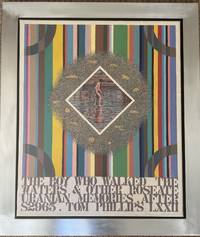by [ARCHIVES & COLLECTIONS] HINTON, David
The archive spans Hinton's entire prolific career, and documents in the greatest detail his ground-breaking translations as well as his studies in ancient Chinese and Ch'an philosophy. Hinton has published twelve books of translations of classical Chinese poetry, seven translations of Chinese philosophy, and five books of his own poetry and criticism. Hinton is also the editor of two major anthologies of Chinese poetry: The New Directions Anthology of Chinese Poetry (2003) and Classical Chinese Poetry: An Anthology (Farrar, Straus & Giroux, 2008), the poems in which he also translated. Hinton has translated I Ching (2015), Mountain (truncated)


